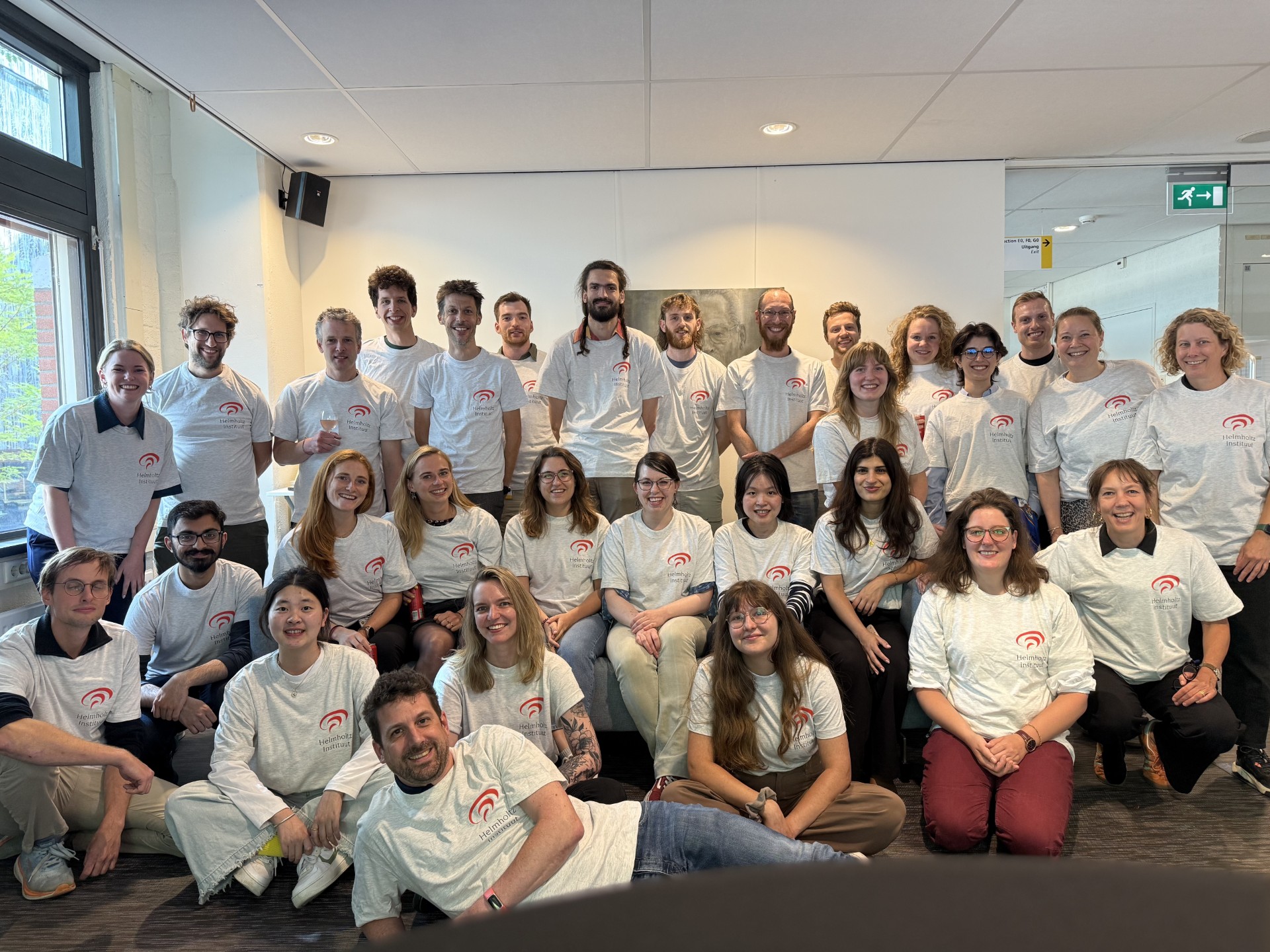Courses
Helmholtz program courses
Students will be assessed on their participation in the interactive lectures and on the assignments. Grades will be in the form of pass/fail.
Sensory Systems
| Coordination: | Dr. Martijn Mulder |
| Teachers: | Dr. Martijn Mulder, local experts |
| Basic knowledge: | Basic Neuroscience and Cognition |
| ECTS: | 2 |
| Form: | Morning sessions: interactive lectures, assignments, experiments and presentations |
| Duration: | 5 days spread over two weeks, plus preparation and assignments |
| Place/time/frequency: | Fall 2021 postponed towards spring 2022, see email annoucements |
| Test: | Students will be assessed on their participation in the interactive lectures and on the assignments. Grades will be in the form of pass/fail. |
| Literature: | Topic-specific handouts |
| Description: | Helmholtz experts will give highly interactive lectures, which will provide the students with an opportunity to increase their knowledge on specific sensory systems, with an emphasis on learning to recognize what different sensory systems have in common. This knowledge will be used in the different assignments. |
Cognitive Neuropsychology: From Patients to Functional Models
| Coordination: | Prof. dr. Albert Postma |
| Teachers: | Prof. dr. Albert Postma, local experts |
| Basic knowledge: | Basic Neuroscience and Cognition |
| ECTS: | 2.5 |
| Form: | Morning sessions: interactive lectures, assignments, experiments and presentations |
| Duration: | 5 days spread over two weeks, plus preparation and assignments |
| Place/time/frequency: | Incorporated within the UU summerschool program; 04 July 2022-15 July 2022, Utrecht, The Netherlands (once every 2 years) |
| Test: | Students will be assessed on their participation in the interactive lectures and on the assignments. Grades will be in the form of pass/fail. |
| Literature: | Topic-specific handouts |
| Description: | Cognitive Neuropsychology gives invaluable insights in how the human mind works and forms an indispensable instrument in modern Cognitive Neuroscience toolbox. The course spans 5 full days of lectures and practical work, in which cognitive neuropsychology research examples and methods are discussed and students have to do a number of practical research and writing assignments, including setting up and trying out their own cognitive neuropsychology experiment. Senior cognitive neuropsychologists give lectures and supervision. Refer to this link for more information. |
Neurophilosophy of Mind and Consciousness
| Coordination: | Prof. dr. Jack van Honk |
| Teachers: | Prof. dr. Dennis Schutter (Experimental Psychology, Utrecht University) Prof. dr. Jack van Honk (Utrecht University, University of Cape Town) |
| Basic knowledge: | Basic Neuroscience and Cognition |
| ECTS: | 2 |
| Form: | This course is a 5-day, two and a half hours a day course, which includes lectures & discussions by experts in the fields of Psychology and Neuroscience, and apart from the daily meetings, literature study and a writing assignment. |
| Duration: | 5 days, plus preparation and assignments |
| Place/time/frequency: | Zoom, date in late summer TBA |
| Test: | Students will be assessed on their participation in the interactive lectures and on the assignments. Grades will be in the form of pass/fail. |
| Literature: | Topic-specific handouts |
| Description: | The question that has baffled scientists and philosophers for centuries is how molecules, cells, neurotransmitters and hormones in our brains create consciousness and self-awareness? There have been breakthroughs in the fields of philosophy, psychology, neuroscience and psychiatry, but the quest for understanding the origins of mind and consciousness continues. The PhD course Neurophilosophy of Mind and Consciousness provides students with novel and practical insights into this field, which will contribute to theorizing and academic writing skills.Please apply by sending an email to jackvanh@gmail.com. This Helmholtz Institute course is exclusively for national and international PhD students Students from Helmholtz and affiliated institutes participate free of charge. See the flyer for more information: Neurophilosophy of Mind and Consciousness PhD course |
Linear Systems Analysis
| Coordination: | Prof. dr. M.A. Frens (Neuroscience, Erasmus MC) |
| Teachers: | Prof. dr. M.A. Frens, dr. I.Th.C. Hooge |
| Basic knowledge: | Participants are expected to be familiar with high school algebra. |
| ECTS: | 2 |
| Form: | Morning sessions: lectures; Afternoon sessions: exercises and simulations |
| Duration: | 3 days plus preparation and assignments |
| Place/time/frequency: | Rotterdam/ Anually (winter) |
| Test: | To be announced, |
| Literature: | D.A. Robinson: Systems Analysis in Oculomotor Control Systems. |
| Description: | This course teaches the basic concepts of linear systems analysis, applied to neurosciences. The main topics are: differential equations, Fourier analysis, Laplace analysis, filtering, and feedback. Examples that are used will stem from neuro-physiology and psychophysics, but also from the daily routine of measuring and analyzing experimental data. Our main goal is to help students without an extensive mathematical background overcome a fear for a quantitative approach of problems, and to show more theoretically oriented students the applications of systems analysis in biological control systems. We will make an effort to keep the course material in relation to daily experimental problems. |


